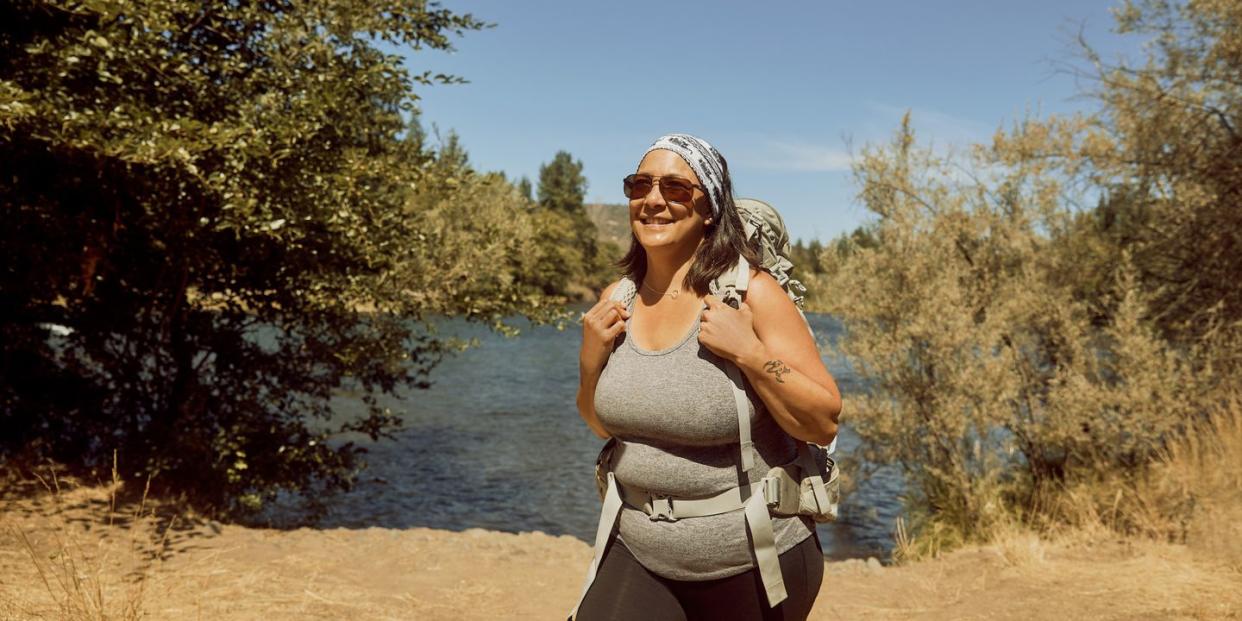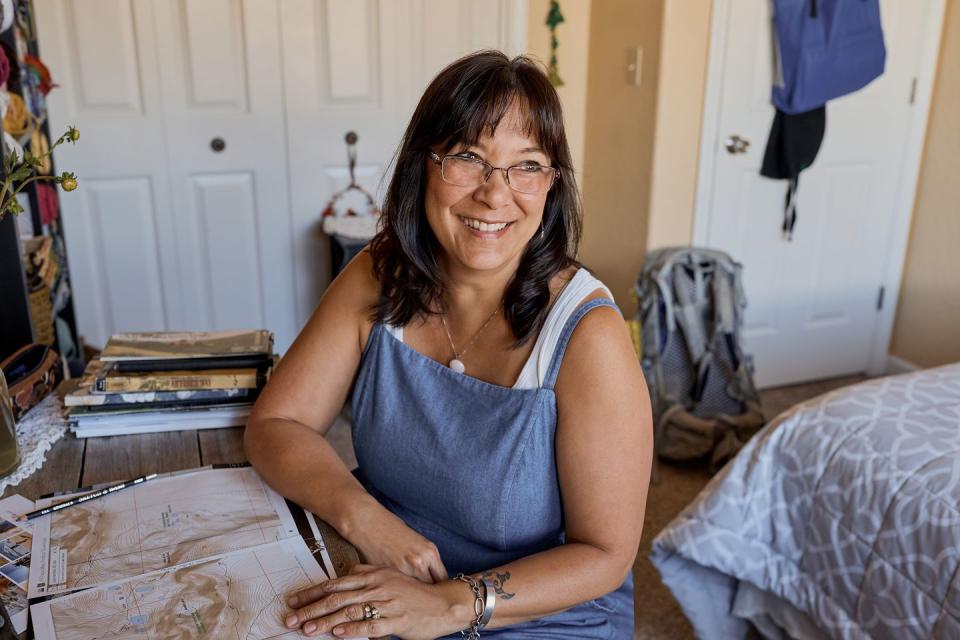Cancer Taught Me to Live a Life I Love

When I was diagnosed with early-stage breast cancer in November 2012, it was a busy time in my life. I had three kids and was running a nonprofit organization, and my first reaction was, "I don't have time for breast cancer!" Even once the diagnosis sank in, I thought I was just giving 8 months of my life over to treatment to get rid of it, and then I’d go right back to normal.
Then I started chemo, and had a horrible experience. I got all the awful side effects, and got them tenfold. I couldn't work; I was basically in bed for the entire course of treatment. I got so sick that I contracted sepsis and ended up in the hospital for three weeks. I almost died. I really felt like I didn't care if I died. I was that miserable in my body.
Then a lightbulb went off and I thought: No, this isn't the way my story ends. I’m meant to live.
I became my own advocate. I started researching treatments and chemotherapies. I got a second opinion, and I took more control of my care. Then, in May of 2013, I learned my cancer had metastasized into my bones and my shoulders. I was now stage 4, and incurable.
It really shook me, because then I knew that I was going to be in treatment for the rest of my life. I didn’t know what that would look like. At any point in time, I could progress. It felt like playing Russian roulette with my body, only I wasn’t the one holding the gun - cancer was.
I spent that year figuring out who I was as Lesley Glenn the woman, not Lesley Glenn the wife, mother, nonprofit owner, or volunteer. I did a lot of soul-searching, being quiet, and really listening to myself. I’m trained in therapeutic arts, so part of my healing process was teaching myself to crochet.
Now, I make these little soft toys called amigurumis and sock monkeys. I think of myself as a crafter and creator. I love to use my hands, and I always have something creative going on.
One of the other things I rediscovered during my soul-searching was my love of the outdoors and hiking, which is something that was put on the back burner when I got married and had kids.
I had always wanted to go to Yosemite, so after my treatment ended, my husband took me. I was still gaining my strength back - I couldn't even hike a mile at the time - and as I was struggling up a path, out of breath, we saw backpackers coming off the John Muir trail. I stopped and told my husband, "You know what? I want to do that. That's my goal. I want to put on a backpack, and go out into the wilderness."
So I picked the tallest mountain in the contiguous United States, Mount Whitney, as my goal. I decided if I was going to do this, I was going to go big. The girlfriends who agreed to go with me said if they had known exactly what I had been asking them to do, they would have said no. It’s not a small hike!

I spent the next eight months training at high altitudes, getting stronger, and then, finally, my girlfriends and I took on the mountain and conquered it. I bawled my eyes out when I got to the summit. Statistics say that one out of three people don’t make it to the top, but my two friends and I had decided we were all going to make it. And we did.
That was a real turning point for me, because I did it for myself. I didn't do it for my kids, I didn't do it for my husband, I didn't do it for an organization. I did it for me. It showed me that I wasn't going to allow cancer to control my life. I was going to decide how I was going to live out the rest of my days.
I became an advocate for the metastatic breast cancer community, and helped found Climb for a Cure in Southern California, which has raised thousands of dollars for research and support.
Fortunately, I've been NED - no evidence of active disease - since 2014, which for metastatic breast cancer is an anomaly. I still have to get blood work and scans done, and there’s still stress involved.
When you have to go get a PET CT, you're not sure what the results are going to be. Every ache and pain makes your stress level go up. Does this mean the cancer has progressed? Or is this just a part of getting older? Your mind can play tricks on you.

What having this disease has taught me is to stop waiting to live the life you want. If you can make it happen, do it now. My husband and I had always talked about moving out of southern California and creating a quieter lifestyle. It was a 10-year plan, but after my diagnosis, we decided to be really bold and make it a 2-year plan.
We spent two years driving all over figuring out where we wanted to land, and picked southern Oregon, where we are now. We’ve both taken a good long look at how we want to live out our days, and have even talked about putting his job on hold so we can travel more.
Statistics say that once you're metastatic, the average lifespan is only three years. I've surpassed that by two more, so I don’t take this time for granted. I want to be engaged in the things I choose to do, whether that’s picking flowers and putting them in a vase or walking the dog with my husband. I want to be fully present in the here and now. I’m not going to let my diagnosis tell me how to live.
('You Might Also Like',)

